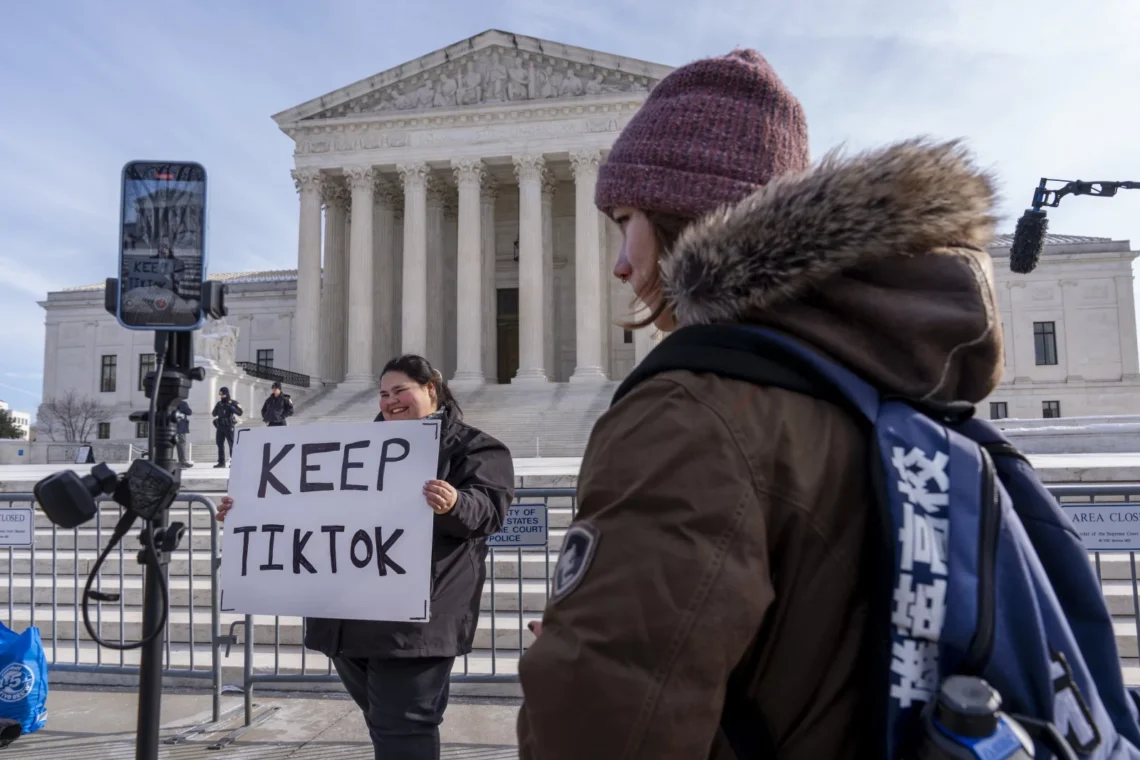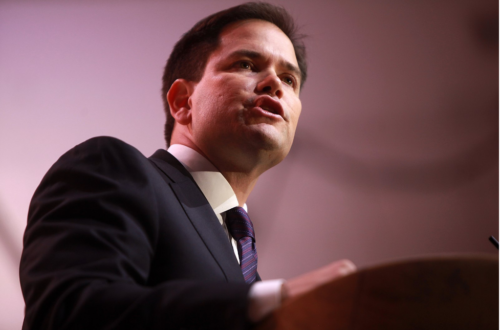For Elizabeth Landen, TikTok was not just an app but a part of her career. Landen, a sophomore at the University of Florida, gained 143,000 TikTok followers by posting comedic short videos of the life of an exchange student attending an American university.
On Jan. 19, Landen’s future felt uncertain amid a potential permanent TikTok ban. “All of my income comes from TikTok,” Landen said. “If it gets banned, I’d have to get another job and that would take time away from school and the opportunities I’ve had in sports media.”
Before TikTok, the United States government had not banned an app before and certainly not one of this size and popularity. Professor Andrew Selepak, a social media expert at the University of Florida, said this is the first piece of legislation attempting to ban a platform.
“Congress has not previously attempted to regulate social media in a largely implicating way,” Selepak said. “This is a major shift because it is not only about data privacy it’s about banning an entire platform based on its country of origin: China.”
Like Landen, thousands rely on TikTok as their primary or sole source of income.
These creators have taken advantage of monetizing their content by taking on brand deals, sponsorships and the Creator Fund TikTok offers. If TikTok is permanently banned, micro-influencers and influencers with a large following on TikTok would be forced to rebuild on other platforms where it may not be as lucrative or easy to grow on.
“There’s a reason most brands still prefer TikTok over Instagram,” Landen said. “The algorithm helps smaller creators go viral, while Instagram is already so competitive.”
A permanent ban presents a major challenge to influencers with focus solely on TikTok. Professor Jay Hmielowski, a public relations research expert at the University of Florida, said utilizing one platform is a risky move.
“Any brand or influencer should be present on multiple platforms,” Hmielowski said. “Why put all your eggs in one basket?”
As a result of a potential ban, after the scare on Jan. 19, influencers are attempting to grow their following across YouTube Shorts and Instagram. TikTok’s main appeal to influencers is the algorithm allows all creators to go viral. Christine Bucan, a public relations professional at the University of Florida, said TikTok prioritizes authentic, unfiltered stories.
“TikTok is video-focused and its algorithm prioritizes engagement over follower count,” Bucan said. “That’s why even small influencers go viral. Other platforms don’t operate the same way.”
For influencers who started on TikTok and have not largely grown their following on other platforms, the transition to other platforms will be lengthy. As influencers brace themselves for a ban, a ban could certainly force influencers to adapt their careers in an everlasting evolving media landscape.
Creators must prioritize adaptability to thrive in the digital landscape. “Smaller influencers will be hit the hardest,” Landen said. “Bigger influencers already have connections. We’re the ones who would have to start over.”
Check out other recent articles from the Florida Political Review here.





